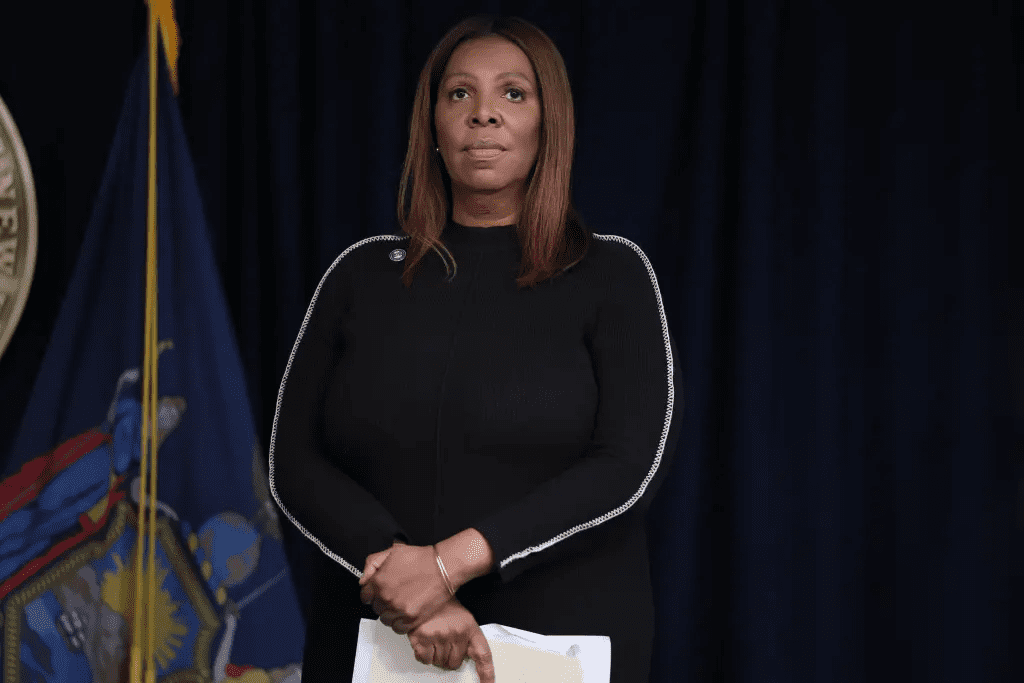Shocking Reveal: Letitia James’ Grandnieces Facing 11 Criminal Charges Over 5 Years — Yet They Avoid Serious Punishment
Letitia James, New York’s powerful attorney general, now finds herself under intense scrutiny as devastating reports emerge about her Virginia-based grandnieces — the women accused of racking up 11 criminal charges over five years, only to see most downgraded or dropped. Sources say the grandnieces reside in homes owned by James in Norfolk, Virginia, the same properties at the heart of federal investigations into her mortgage dealings. Among them is 21-year-old Cayla Thompson-Hairston, once charged with lying on a firearm purchase due to a prior juvenile felony and also convicted of shoplifting—yet prosecutors later dismissed or reduced those counts. Her sister, Nakia Thompson, has also been implicated in multiple theft cases and is reportedly a fugitive in North Carolina for violating probation, though she now resides in one of James’ properties under investigation.

The spotlight on these cases comes as James herself faces serious legal jeopardy: in October 2025, a federal grand jury in Virginia indicted her on one count of bank fraud and one count of making false statements to a financial institution, alleging she misrepresented a Norfolk, Virginia home as a secondary residence while actually renting it out to family members. The indictment claims that James’ misrepresentation allowed her to obtain unusually favorable loan terms, saving her an estimated $18,933 over the life of the mortgage. Legal analysts have raised questions about whether the prosecution is being weaponized, especially given that career prosecutors reportedly declined to bring charges before James was ultimately indicted by a Trump-appointed interim U.S. Attorney.
Now, critics and legal observers alike are examining whether the seemingly light treatment of the grandnieces’ cases hints at preferential treatment or political influence. The fact that multiple felony-level charges were downgraded or dropped entirely raises serious questions about consistency and accountability. If high-profile relatives of a state’s top law enforcement official repeatedly avoid harsh consequences, the appearance of justice applied selectively grows harder to ignore.

Cayla’s case is particularly emblematic. Charged in April 2024 with lying on a firearm purchase application by failing to disclose a felony conviction, her charges were later dropped. That same year she pleaded guilty to shoplifting but received a suspended sentence and probation—outcomes that many legal pundits say are unusually lenient. Meanwhile, her sister Nakia’s status is more fraught: she has prior theft convictions and is a fugitive from North Carolina’s probation system, yet has lived for years at James’ Virginia property without facing extradition. As a Washington Examiner piece points out, Nakia’s crimes were misdemeanors and possibly non-extraditable—meaning she may avoid legal consequences entirely so long as she stays in Virginia.

Whatever legal outcome James faces in her own case, the contrast between her grandnieces’ treatment and ordinary criminal prosecutions will likely be debated for years. Even if courts ultimately dismiss or reduce many of these criminal charges, the public’s perception of justice is at stake. For those watching closely, this saga underscores how privilege, political ties, and prosecutorial discretion can intersect in ways that ordinary citizens rarely encounter.

As James prepares to appear in federal court later this month and mount her defense, the stories of Cayla and Nakia Thompson offer more than tabloid intrigue. They provide a lens into how power, family, and law enforcement collide—and whether the system treats everyone equally when the stakes are highest.



